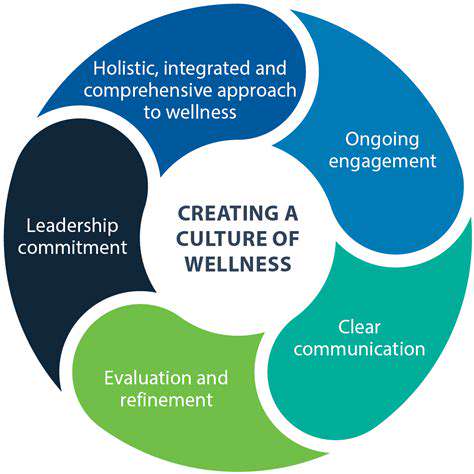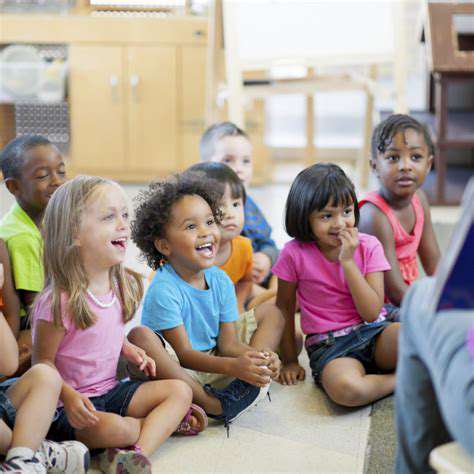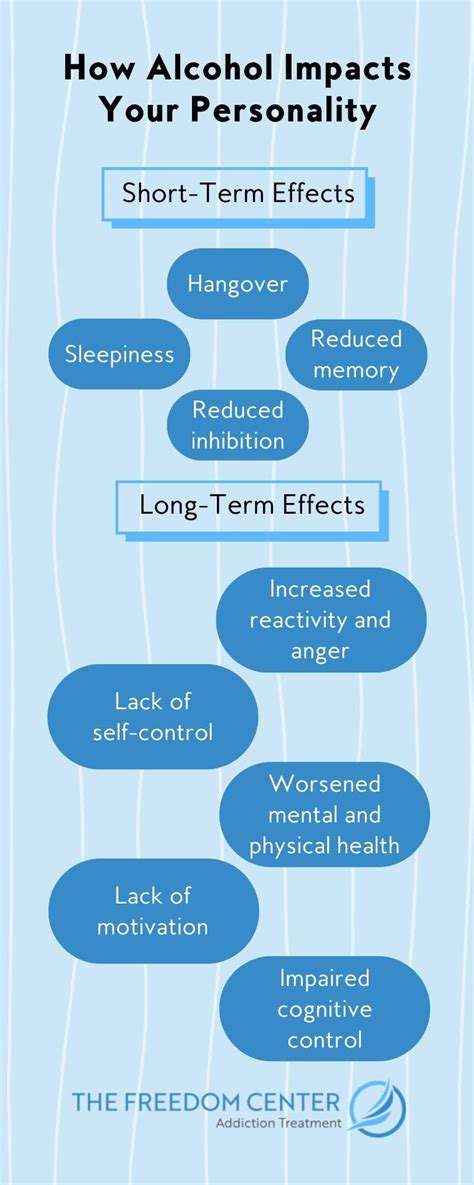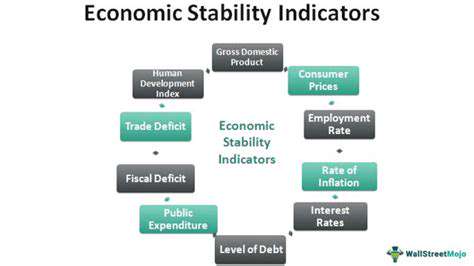Play Based Learning and Its Long Term Benefits
Contents
Play-Based Learning supports children's cognitive, social, and emotional development.
Educators facilitate play-based learning, guiding children's exploration and creativity.
Children build social skills through collaborative play experiences.
Play enhances critical thinking, problem-solving, and emotional resilience.
Implementing play-based learning can face misconceptions and logistical challenges.
Play promotes empathy and emotional regulation in children.
Long-term benefits include improved academic performance and interpersonal skills.
Various play types foster independent thinking and teamwork among children.
Integrating play into education creates engaging and effective learning environments.
Communities enhance play-based learning through shared resources and support.
The Foundation of Play-Based Learning
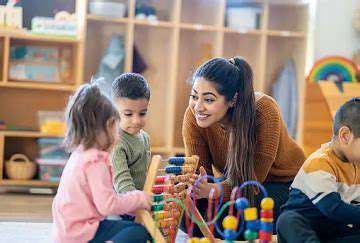
Understanding Play-Based Learning
Play-based learning is an educational approach that incorporates play as a vital component in children's development. This method recognizes that play is not merely a recreational activity, but a critical learning tool. Children engage in play that promotes social, emotional, cognitive, and physical skills, forming the backbone of their educational experience.
Unlike traditional learning methods, which often emphasize rote memorization and rigid structures, play-based learning encourages exploration and creativity. In this environment, children are free to pursue their interests, fostering a sense of autonomy that is crucial for intrinsic motivation. The joy of learning through play ignites curiosity and enhances problem-solving skills, laying a strong foundation for lifelong learning.
The Role of Educators in Play-Based Learning
Educators play a pivotal role in facilitating play-based learning experiences. They must be adept at creating an environment that nurtures play while still guiding the learning process. Effective educators recognize the importance of observation, allowing them to identify opportunities for extending children's understanding through thoughtful questioning. This approach helps children make connections between their play and real-world concepts.
Moreover, educators provide essential resources and materials that spark creativity and engagement during play. Their ability to thoughtfully integrate educational objectives into playtime is crucial, ensuring that children not only enjoy their activities but also gain valuable skills. Engaging with children in their play further deepens the learning experience, helping to foster relationships built on trust and collaboration.
Benefits of Play-Based Learning
Play-based learning offers numerous benefits that extend beyond the immediate educational environment. One significant advantage is the development of social skills, as children learn to communicate, negotiate, and cooperate with peers during playful interactions. These social dynamics are foundational for building lasting friendships and navigating complex social situations in the future. Engaging in cooperative play also promotes empathy and understanding of diverse perspectives among children.
Additionally, play-based learning enhances cognitive development, enabling children to think critically and solve problems collaboratively. Through engaging in activities that challenge their thinking, children learn to approach difficulties with creativity and resilience. This ability to adapt to challenges can have profound implications for their academic success and personal growth as they transition into adulthood.
Challenges and Solutions in Implementing Play-Based Learning
Despite its many advantages, implementing play-based learning can present several challenges. One common barrier is the misconception that play is simply a distraction from serious learning. Overcoming this stereotype requires ongoing education and advocacy to help parents and educators understand the profound learning that occurs through play. Sharing research and success stories can facilitate a shift in perception and encourage broader acceptance of this methodology.
Additionally, logistical constraints, such as limited resources and time, can pose challenges in delivering effective play-based learning. To address this, schools can foster partnerships with local communities and organizations to access tools, materials, and expertise that enhance play-based experiences. By creatively utilizing existing spaces and encouraging collaborative projects, schools can successfully cultivate an enriching and engaging play-based learning environment.
Cognitive Development and Problem-Solving Skills
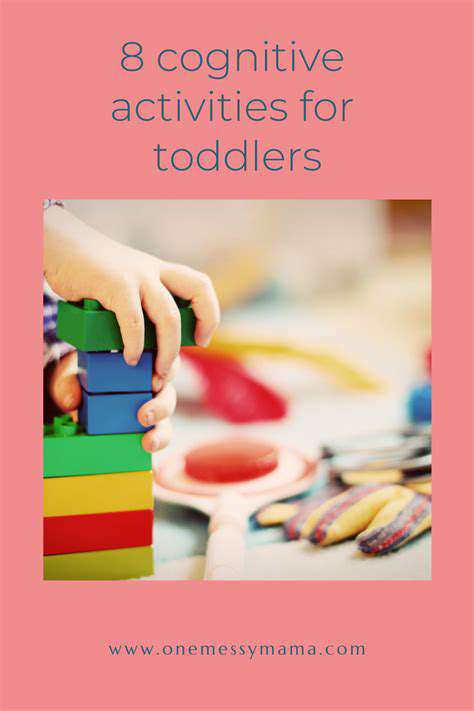
Understanding Cognitive Development in Early Childhood
Cognitive development is a critical aspect of early childhood that involves the growth of a child's ability to think, learn, and solve problems. It encompasses various skills, such as memory, attention, and reasoning. The stages of cognitive development, as described by theorists like Piaget, reveal a natural progression through which children engage with and interpret the world around them.
During these formative years, children learn through exploration and interaction with their environment. They build foundational skills necessary for academic success and daily decision-making. Play-based learning serves as an essential tool in stimulating these cognitive processes, allowing children to discover and experiment while learning new concepts.
Incorporating activities that promote reasoning and problem-solving can significantly enhance cognitive development. Games and puzzles, for example, require children to think critically and develop strategies, fostering their analytical capabilities while they play.
The Role of Problem-Solving Skills in Learning
Problem-solving skills are crucial for navigating challenges in life and academia. Young children often encounter problems during play that require creative thinking and flexibility in their approach. Facilitating an environment where they can encounter these problems helps strengthen their problem-solving abilities.
These skills not only play a role in academic success but also in social interactions and emotional regulation. When children engage in collaborative play scenarios, they learn to negotiate, compromise, and develop solutions together. This collaborative learning experience is essential for nurturing their interpersonal skills and emotional intelligence.
By integrating problem-solving activities into play, educators and parents can provide significant scaffolding for children's developmental trajectories. This type of experiential learning allows for deeper understanding and retention of knowledge, as children directly engage with the material.
Enhancing Cognitive Skills Through Play-Based Learning
Play-based learning is recognized for its capacity to enhance cognitive skills across various domains. Activities that encourage imaginative play, for instance, stimulate creativity and critical thinking. These activities are not mere distractions; they are purposeful engagements that lead to significant cognitive gains.
As children navigate games and cooperative tasks, they further their understanding of cause and effect, spatial awareness, and logical reasoning. Each playful interaction is a stepping stone towards more complex cognitive functions that they will utilize throughout their lives.
Moreover, play provides ample opportunities for formative assessments of these skills. By observing children's choices and behaviors during play, educators can effectively tailor strategies to meet each child’s cognitive development needs.
The Long-Term Benefits of Play-Based Learning
The long-term benefits of play-based learning extend well beyond early childhood. Research indicates that children who engage in play-based learning are often better equipped to tackle academic challenges later in life. They develop a love for learning which can lead to greater persistence in the face of difficulties.
Furthermore, play-based learning encourages creative problem-solving abilities that remain relevant throughout adulthood. Individuals with strong problem-solving skills are more likely to succeed in various fields, as they can efficiently navigate the complexities of personal and professional challenges.
Ultimately, fostering a strong foundation in cognitive skills through play provides lifelong advantages, creating individuals who not only excel academically but also contribute positively to society.
Effective Strategies for Promoting Cognitive Development
Implementing effective strategies for promoting cognitive development through play involves understanding children's needs and interests. Activities should be tailored to be both challenging and achievable, allowing for a productive sense of frustration that fosters growth. Play materials and environments should stimulate curiosity and exploration.
Structured play, where adults guide activities without overtaking them, encourages children to engage deeper with the tasks at hand. This balance allows children to take risks, experiment, and ultimately resolve conflicts independently within a safe context. Engaging children in discussions about their play helps solidify their understanding and reasoning processes.
Collaboration is another key strategy. By encouraging group play, children learn vital communication skills and broaden their cognitive abilities through shared experiences. This shared environment fosters a sense of community and belonging critical for their overall development.
Social and Emotional Growth
Understanding the Foundations of Social Skills Through Play
Play-based learning creates a rich environment where children can explore social interactions in a low-pressure setting. In this supportive atmosphere, youngsters learn to navigate the complexities of sharing, collaboration, and communication. By engaging in cooperative play, children develop essential social skills that are foundational for future relationships.
The importance of role-playing in this context cannot be overstated. Children imitate adults and their peers during play, allowing them to practice various social scenarios, from negotiating sharing to resolving conflicts. This simulation of real-life situations helps embed critical social norms and behaviors that will serve them well in more formal settings as they grow.
Moreover, through play, children develop empathy, a crucial component of emotional growth. By participating in games that require them to consider others’ feelings, children learn to respond with kindness and understanding. This emotional intelligence positively impacts their ability to form lasting friendships and interact positively within their communities.
Additionally, cooperative play helps to build teamwork skills. As children work together toward common goals or in creative pursuits, they learn how to communicate effectively and listen to others’ ideas. These experiences contribute to a sense of belonging and acceptance, enhancing their overall social experience and helping them to feel valued in group settings.
Ultimately, the social skills children develop through play serve as the building blocks for their future interactions. Understanding how to work with others, effectively communicate, and demonstrate empathy are all vital attributes for success in both personal and professional realms. Thus, play-based learning not only enriches childhood experiences but also lays the groundwork for future relational success.
Emotional Resilience and Problem-Solving Through Play
Play-based learning fosters emotional resilience, allowing children to confront challenges and develop coping strategies in a safe environment. As children encounter obstacles during play, whether they are related to competition or problem-solving, they learn how to manage frustration and disappointment effectively. This hands-on experience builds confidence in handling future hardships.
Engaging in play also provides opportunities to practice emotional regulation techniques. For instance, when a child experiences a setback during a game, they can learn how to pause, assess their feelings, and make informed choices about how to respond. These skills are crucial, as they contribute to a child's ability to navigate the emotional ups and downs of life with grace.
Furthermore, play often involves storytelling and imaginative scenarios that allow children to express their feelings and understand others’ emotional experiences. This cultural narrative aspect of play can enhance a child’s emotional vocabulary, making it easier for them to articulate their feelings and experiences as they mature.
As children engage in cooperative or competitive games, they are frequently required to think critically and develop solutions to complex problems. This nudges them to use creativity and innovation—skills that remain invaluable well into adulthood. By learning to overcome obstacles through play, children inherently build a toolbox of strategies for life’s myriad challenges.
Ultimately, nurturing emotional resilience and problem-solving skills through play ensures that children are poised to face life’s challenges confidently. The integration of emotional and cognitive growth through playful experiences contributes not just to their immediate well-being but also their long-term success in personal and professional endeavors.
The Long-Term Academic Benefits
Enhancing Cognitive Development
Play-based learning significantly contributes to cognitive development in children by providing them with opportunities to explore and interact with their environment. When children engage in play, they experiment with ideas, manipulate objects, and develop problem-solving skills that are crucial for academic success. This nurturing of cognitive abilities can lead to improved performance in subjects like math and science, which rely heavily on analytical thinking.
Research has indicated that children who partake in play-based activities tend to show higher levels of creativity and reasoning compared to their peers who favor traditional learning methods. The creative freedom embedded in play allows them to think outside the box and approach challenges from various angles. This cognitive flexibility not only fuels imagination but also prepares them for innovative roles in future careers.
Additionally, play interactions create a context for social negotiation and language use, both of which are essential components of cognitive growth. As children engage with their peers in play, they practice communicating ideas and understanding different viewpoints, which enhances their comprehension skills. This process of social learning sharpens their ability to articulate thoughts clearly and confidently.
Moreover, regular engagement in play stimulates various brain regions associated with learning and memory. Neuroplasticity, the brain's ability to reorganize itself, is enhanced through these dynamic play experiences. This means that children are not just memorizing facts, but rather building a rich network of knowledge that is easily accessible as they progress through their education.
In summary, the cognitive benefits derived from play-based learning are profound and extend far beyond the early years. By fostering curiosity and critical thinking, children are better equipped to tackle complex academic tasks as they advance through their educational journey.
Fostering Social and Emotional Skills
One of the key advantages of play-based learning is its role in fostering essential social and emotional skills among children. Through collaborative play, children learn to negotiate, share, and take turns, which are vital components of effective interpersonal interactions. These social skills are not only important in childhood but also lay the groundwork for future relationships in the workplace and beyond.
As children navigate various play scenarios, they encounter diverse social roles and responsibilities. This interaction encourages them to develop empathy as they learn to understand and respond to the emotions of their peers. Empathy is a critical emotional skill that allows individuals to connect with others and handle conflicts constructively, which becomes increasingly important in adulthood.
Additionally, engaging in play provides a safe space for children to express their emotions, thereby promoting emotional regulation. They learn to cope with feelings of frustration and disappointment when things don't go as planned during play. Such experiences develop resilience and self-control, qualities that are invaluable in children's personal and academic lives.
Furthermore, play-based learning supports the concept of collaboration. As children work together towards common goals in play, they gain confidence in their social abilities and learn to appreciate the contributions of others. These skills enhance group dynamics and prepare them for success in collaborative work environments later on.
In essence, the social and emotional competencies cultivated through play-based learning are critical to developing well-rounded individuals. By nurturing these skills in early childhood, we empower children to build constructive relationships and approach social situations with confidence and empathy.
Improving Academic Motivation and Engagement
Play-based learning is instrumental in enhancing children's motivation and engagement in academic settings. When learning is rooted in play, it becomes a joyful experience rather than a chore, which can significantly increase students' willingness to participate in educational activities. This inherent motivation often translates into higher academic achievement across various subjects.
In environments that prioritize play-based learning, children are more likely to take initiative in their learning journey. They are given the freedom to explore topics that interest them and engage with materials that are stimulating and relevant. This autonomy fosters a sense of ownership and responsibility regarding their education, driving a natural desire to learn.
Moreover, the interactive nature of play helps to keep children engaged longer than traditional educational methods. When students are actively involved in the learning process through hands-on activities, they develop a deeper understanding of concepts. This deep engagement not only aids retention but also encourages critical thinking and application of knowledge beyond rote memorization.
The fun and interactive elements of play can also help reduce anxiety and promote a positive attitude towards learning. Children who enjoy their learning experiences are more likely to approach challenges with confidence rather than fear. This shift in mindset can lead to lifelong learning habits, as they become more open to experiencing new knowledge and skills throughout their lives.
In conclusion, the academic motivation and engagement fostered by play-based learning create a solid foundation for lifelong learners. By embedding joy and interaction into educational practices, we can inspire children to not only appreciate learning but also actively seek out opportunities to expand their horizons.
Fostering Lifelong Skills Through Play
The Importance of Play in Early Childhood Development
Play is not just a mere pastime; it serves as a fundamental building block in early childhood development. Through play, children explore their environments, developing critical cognitive skills. Engaging in imaginative play allows children to express their creativity and develop problem-solving abilities. It encourages them to think outside the box, which can greatly benefit their academic pursuits later on. Furthermore, through play, children learn to navigate social interactions, building essential interpersonal skills that are crucial throughout life.
Additionally, play fosters emotional skills, providing children a safe space to express their feelings and learn emotional regulation. Through cooperative games, children learn empathy, sharing, and recognizing others' emotions. These foundational emotional skills are directly linked to future relationship building, both personally and professionally. The skills children cultivate during playtime are often reflected in their adaptability and resilience in the face of challenges as they grow older, making early play experiences essential for lifelong emotional health.
Mind-body coordination is yet another vital skill honed through playful activities. Many games and sports require physical agility, enhancing motor skills and promoting overall physical health. In a world where sedentary lifestyles are increasingly common, play encourages an active lifestyle, fostering habits that contribute to a child’s long-term well-being. This emphasis on physical health through play instills a sense of discipline and commitment that children often carry into adulthood.
Moreover, play serves as a preliminary introduction to the concept of logic and structured thinking. Many educational toys and games are designed to enhance strategic thinking, mathematical reasoning, and even spatial awareness. These early exposures set a strong foundation for future academic pursuits, particularly in STEM fields where critical thinking and problem-solving abilities are paramount. Consequently, the play experiences of children directly influence their academic achievements in later years.
Types of Play That Promote Learning
There are various types of play that distinctly enhance learning and development. Free play allows children to engage with their surroundings without predefined rules. This unstructured format fosters creativity as children invent their games and scenarios, cultivating autonomy and independent thinking. In contrast, guided play provides a more structured environment led by adults. This type of play engages children in designated activities that promote skill development while still allowing freedom for creativity.
Another effective type of play is cooperative play, where children work together towards a common goal. This form instills teamwork and collaboration, helping them understand the value of communicating and compromising with peers. Engaging in group activities can refine negotiation skills and enhance social bonds. Such experiences are crucial in preparing children for collaborative work environments they will encounter later in life.
Role-playing games allow children to step into various characters' shoes, providing unique perspectives and critical thinking opportunities. This type of play encourages imaginative thinking, as children learn to create and develop narratives, enhancing their storytelling and communication skills. Additionally, it serves as a platform for understanding social roles, empathy, and cultural sensitivities, which are essential in a diverse society.
Constructive play, involving building and creating with materials such as blocks or art supplies, promotes spatial awareness and fine motor skills. Children learn about balance, structure, and creativity, providing a hands-on understanding of engineering concepts at an early age. The process of creating something tangible fosters a sense of accomplishment, which boosts confidence and encourages further exploration of their interests.
Integrating Play-Based Learning in Educational Settings
Educators increasingly recognize the powerful impact of play-based learning in formal educational settings. Integrating play into the curriculum transforms the classroom into an active learning environment where children can thrive. Play-based learning methodologies encourage exploration, curiosity, and touch, which stimulates better retention of information and academic concepts. This approach redefines education as a dynamic process rather than a passive absorption of facts.
By incorporating play strategically into lesson plans, teachers can address a range of learning styles, ensuring that all students have the opportunity to engage meaningfully with content. Activities such as educational games, role-playing scenarios, and exploratory projects facilitate collaboration and enhance engagement in students. Such interactive methods can significantly reduce the anxiety often associated with traditional learning, creating a more positive classroom atmosphere.
Professional development for educators is vital for successfully implementing play-based learning. Teachers equipped with the right tools and understanding of childhood development principles can create effective, play-rich environments. Ongoing training focused on innovative teaching strategies allows educators to adapt to individual students’ needs, ensuring that their approach remains inclusive and supportive for diverse learning requirements.
Moreover, collaboration among educators, parents, and communities can further strengthen the effects of play-based learning. When families value and encourage play at home, children have the opportunity to reinforce the skills learned in school. Community support can facilitate environments where children can engage in play, whether through parks, community centers, or after-school programs, fostering a vibrant developmental ecosystem.
Long-Term Benefits of Play-Based Learning
The long-term benefits of play-based learning affect various aspects of a child’s life. Research has shown that children who engage in regular play demonstrate higher levels of executive functioning, which includes skills such as attention control, cognitive flexibility, and working memory. These skills are not only crucial in childhood but also significantly impact academic achievement and professional success throughout life.
Additionally, children who have experienced extensive play-based learning often exhibit improved social skills. They're typically better equipped to navigate complex social situations, resolve conflicts amicably, and foster strong relationships with peers. This ability to engage harmoniously with others can lead to fruitful collaborations and professional relationships in adulthood, highlighting the importance of developing these skills early on.
Emotional resilience is another long-term benefit that can be attributed to play. The capacity to deal with disappointment, stress, and failure often stems from experiences faced during play. Whether it's losing a game or negotiating a role in imaginative play, children learn to overcome challenges, which instills confidence. As adults, these individuals often demonstrate a greater ability to cope with life's inevitable ups and downs.
Lastly, fostering a lifelong love for learning is an invaluable outcome of play-based education. Children who engage in playful learning are more likely to pursue their passions and interests as adults, often leading to continuous personal and professional development. This intrinsic motivation to learn can influence various aspects of their lives, resulting in more enriched and fulfilled experiences.

